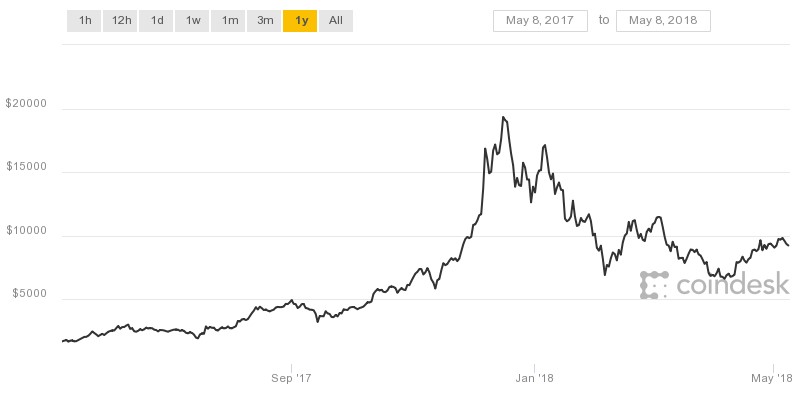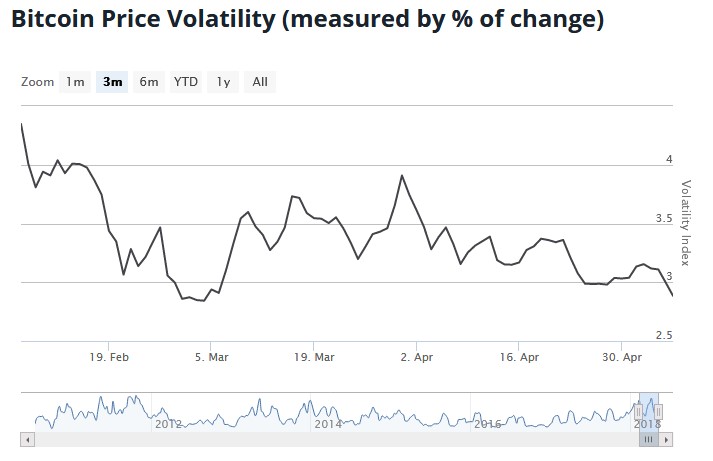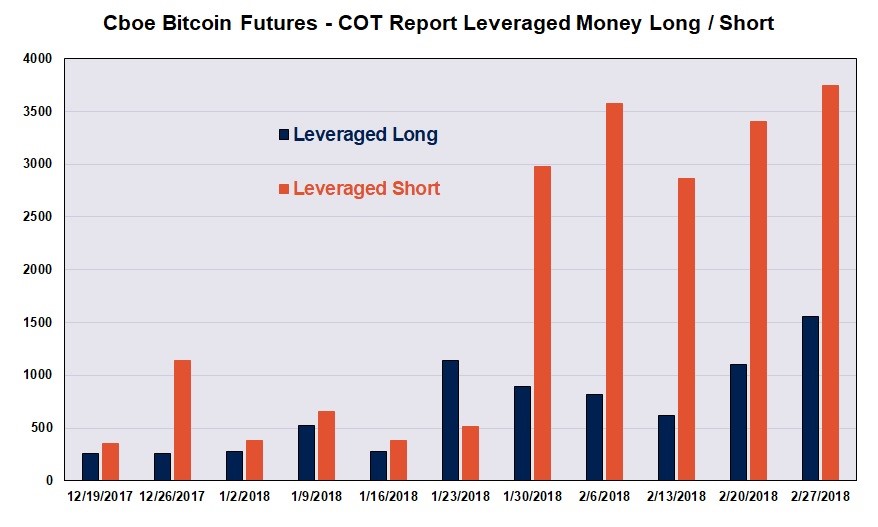Bitcoin bulls will remember with nostalgia the digital currency’s epic run in late 2017 that took it to an all-time high of nearly $20k after exploding 300 percent in the space of a month.
But since then, the coin's fortunes seem to have dwindled considerably. Lately, it has been facing severe resistance around $10k, a level it last touched two months ago.

(Click to enlarge)
Source: CoinDesk
Unfortunately, chances that Bitcoin will be able to pull off another run like that appear slim. Bitcoin's volatility has been steadily retreating since it hit a seven-year high on February 6, making it difficult to explode in similar fashion.

(Click to enlarge)
Source: 99bitcoins.com
Opinion on the utility of Bitcoin and cryptocurrencies in general remains deeply divided.
Some punters have been predicting that it will one day overtake gold, while others like Berkshire Hathaway's Munger think it’s nothing more than worthless artificial gold. What cannot be argued against, however, is the sheer volatility of Bitcoin and its digital cousins.
Bitcoin has been so volatile in the past that its ‘investability’ has been just terrible. In fact, according to giant Asian investment bank, Mizuho, Bitcoin's risk-adjusted returns in 2017 clocked in at a miserly 3.1 percent, way lower compared to the S&P 500's 11 percent, or Euro Stoxx's 13.8 percent reading over the timeframe. Related: How The Biggest Name In Gaming Lost $6 Billion In A Month
Risk-adjusted returns is a metric used to estimate the probability of buying and selling an asset at just the right time and walking away with a profit. Depending on their timing and strategy, the average Bitcoin investor probably did far less well than another investor who put their money into stocks.
It's perhaps not by sheer chance that the mad rally and subsequent deep slide by Bitcoin prices coincided with the launch of Bitcoin futures. CBOE launched the world's first Bitcoin futures on December 10, 2017, with CME following up with its own contracts the very next week. Two days later, Bitcoin peaked at $19,343 and has never looked close to approaching that pedestal again.
The CFTC Commitment of Traders report for CBOE futures shows that leveraged short positions have far outstripped leveraged longs by a wide margin since the final week of January 2018.

(Click to enlarge)
Source: CBOE
Another Wall Street analysis revealed that big traders were overwhelmingly bearish about Bitcoin, while smaller ones were overwhelmingly bullish. That's perhaps not surprising at all since many Wall Street pundits have called Bitcoin a bubble and continue doing so even now that it's down for the count.
Bill Gates recently had his take on Bitcoin and said he would not hesitate to short it if there was an easy way to do it.
Bitcoin is Maturing
So how much are Bitcoin futures to blame for Bitcoin's lethargic performance?
Related: “Defective At Its Core”: Trump Scraps The Iran Deal
Bitcoin futures were initially off to a slow start as the big banks were reluctant to dabble in cryptos at first. Volumes have been picking up steadily though they still remain a small fraction of the nearly $160-billion Bitcoin market.
Perhaps the other big reason why Bitcoin has become a lot less jumpy is that it's maturing and gradually gaining acceptance especially on Wall Street.
Maybe now it's time for the digital coin to consolidate its gains, and that's a marathon not a sprint.
By Alex Kimani for Safehaven.com
More Top Reads From Safehaven.com:
















